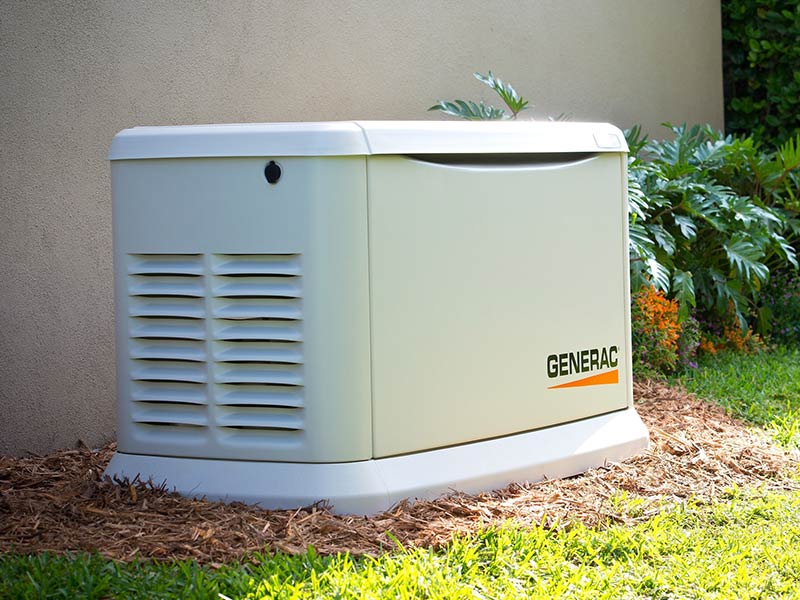A home generator offers peace of mind during storms, outages, and emergencies—but only if the generator works when you need it most. Like any major piece of equipment, your home generator requires care and maintenance to stay reliable. Whether you own a standby generator or a portable unit, taking proactive steps ensures you get the most value and longevity from your investment.
In this guide, we'll cover practical tips to help extend the life of your home generator, keep it running efficiently, and avoid costly breakdowns.
1. Schedule Regular Maintenance
Routine maintenance plays the most important role in preserving your generator’s health. Most manufacturers recommend service every 6 to 12 months or after a set number of run hours—whichever comes first.
Professional generator maintenance packages should include:
- Oil and filter changes
- Battery testing and charging
- Spark plug inspections
- Air filter replacement
- Fuel system inspection
- Load testing
A licensed electrician or local generator technician can spot issues early and keep your system running at peak performance. Regular checkups also ensure compliance with warranty terms and extend the useful life of your generator’s engine and components. Skipping service intervals often leads to clogged filters, battery failures, or startup issues during outages.
2. Keep the Generator Clean and Clear
Dirt, leaves, and debris can accumulate around your generator, especially if it’s located outdoors. Keep the surrounding area clear of clutter, foliage, and pests to prevent airflow blockages, overheating, or damage.
Clean the exterior regularly and inspect for signs of rust or corrosion. If your generator sits idle for extended periods, consider investing in a weatherproof cover that allows ventilation.
3. Exercise the Generator Regularly
Generators perform better when run consistently. Exercise your system at least once a month by letting it run for 15–30 minutes under load. This process lubricates internal components, prevents fuel from becoming stale, and ensures the system starts easily in an emergency.
Many standby generators feature automatic weekly or monthly self-tests. Make sure your settings match your usage needs and monitor the results or alerts.
4. Use High-Quality Fuel and Stabilizers
Poor fuel quality shortens the lifespan of your generator faster than most homeowners realize. Use clean, high-octane fuel recommended by your manufacturer. If storing fuel for extended periods—especially in portable units—add a fuel stabilizer to prevent degradation and engine issues.
For standby generators powered by natural gas or propane, ensure regular inspections of fuel lines and tanks to maintain safe and consistent operation.
5. Avoid Overloading Your Generator
Each generator comes with a specific wattage capacity. Exceeding this limit places stress on the engine and components, reducing efficiency and increasing wear.
Hire a professional to calculate your essential circuits or appliances and match the load to the generator’s rated output. A licensed electrician can help install a transfer switch or subpanel to prioritize key systems and avoid overload.
Consistently overloading your system causes overheating, tripped breakers, and permanent engine damage. Understanding your power needs and managing them wisely by working with a local electrician not only protects your generator but also improves household safety.
6. Replace Worn Parts Promptly
Like any engine, parts gradually wear out over time. Don’t wait for failure. Replace batteries, filters, spark plugs, and belts according to the manufacturer’s schedule or at the first sign of trouble. Delaying these minor repairs often leads to major failures down the road.
Neglected components can create cascading damage throughout the system, increasing repair costs and downtime. Proactive part replacement keeps performance consistent and minimizes the risk of unexpected outages during critical moments.
7. Schedule Annual Professional Inspections
Even if you perform routine maintenance yourself, schedule a professional inspection at least once a year. Electricians and generator specialists have the tools and knowledge to detect electrical problems, test load capacity, and ensure code compliance.
Electricians also check software updates or firmware diagnostics that may impact newer smart generator models.
Keep Your Generator Ready When You Need It Most
A home generator protects your comfort, safety, and productivity during unpredictable weather and outages. With regular care and professional support, your generator can last 15–30 years or longer.
If you live in New Jersey and want help maintaining or upgrading your generator, contact All City Electric today. Our licensed team of electricians provides expert generator installation, service, and maintenance to keep your home powered and protected year-round. Contact us today or dial (908) 497-9977 to get started!




















































